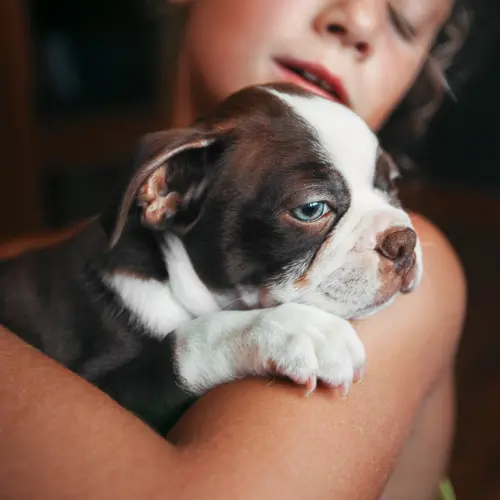What Is Lokivetmab?
Lokivetmab (Cytopoint) is an FDA-approved shot your vet can give your dog to treat itching and skin inflammation (dermatitis) that’s usually caused by allergies. Allergens like pollen, dust particles, and mold trigger your dog’s immune system to overreact, which causes the skin inflammation and itching.
Lokivetmab works by blocking the protein that causes the itching in as fast as one to three days. Relief from one shot can last four to eight weeks.
How Is Lokivetmab Used?
Your veterinarian has to give lokivetmab to your dog as a shot in their office. Your vet can give your dog one shot or a shot every four to eight weeks to control their itching.
Lokivetmab isn’t available for cats.
Always follow your veterinarian’s directions for giving your pet medicines. Tell them about any medicines, vitamins, supplements, or herbal therapies you give your dog. Talk to your veterinarian before stopping any pet medicines.
What Are the Benefits of Lokivetmab?
There are many benefits of lokivetmab:
- Your dog will start to get relief from itching in one to three days.
- One shot can keep your dog itch-free for four to eight weeks.
- It’s approved by the FDA for short- and long-term use in dogs.
- Your dog will feel much better without itchy skin.
What Follow-Up Is Required?
You and your veterinarian should watch your dog to see if their itching gets better, or if it returns. Also, look out for any side effects of the medicine, or signs of skin irritation.
Does Lokivetmab Have Warnings or Side Effects?
Don’t give your dog lokivetmab if they’re allergic. Also be cautious using lokivetmab on dogs that are breeding, pregnant, or nursing.
If your dog does have side effects from the shot, they’ll usually happen within a few days and include:
- Vomiting
- Low appetite
- Loose stool or diarrhea
- Pain at the site of the shot
- Difficulty walking or limping
- Tiredness (lethargy)
Some dogs (up to 2.5%) that get lokivetmab shots build up immunity, so it no longer works to prevent itching.
Serious side effects and overdose of lokivetmab are very rare. But if you think that your dog is having problems from the shot, call your veterinary clinic right away. If it’s outside of regular office hours, contact a local emergency veterinary hospital or an animal poison control center. Note that fees may apply for emergency consultation.
You can reach the ASPCA Animal Poison Control Center at 888-426-4435 or the Pet Poison Helpline at 855-764-7661.
Does Lokivetmab Interact With Other Medicines (Drug Interactions)?
Using multiple medicines can sometimes change how your dog’s medicines work or increase your dog’s risk of serious side effects. Always tell your veterinarian about any prescription or over-the-counter medicines, vitamins/minerals, herbal products, and other supplements your dog takes.
Lokivetmab has been used with other medicines in studies with no reports of serious side effects. These medicines include:
- Parasiticides (medicines to kill parasites, such as fleas, ticks, and worms)
- Antihistamines (medicines to treat sneezing and itching)
- Antibiotics (medicines to fight infections caused by bacteria)
- Anticonvulsants (medicines to control seizures)
- Antifungals (medicines to fight infections caused by fungus)
- Corticosteroids
- Nonsteroidal anti-inflammatory drugs (NSAIDs)
- Vaccines
- Immunotherapies (medicines that affect the immune system)
- Levothyroxine (a medicine to replace thyroid hormones)
- Other anti-itching medicines
Are There Safety Concerns for Dog Owners?
Since your vet has to give your dog the shots, you shouldn’t have to worry about any safety concerns.
What if My Pet Takes Too Much, Overdoses, or Misses a Dose?
Again, your veterinarian will be handling the medicine and giving your dog the shot, so it’s unlikely your dog will get too much or overdose on lokivetmab.
If you realize you missed a scheduled appointment for a dose of lokivetmab for your dog, call your veterinarian to reschedule. Keeping your dog on schedule to get their shots of lokivetmab is important to make sure their symptoms don’t come back.
How Is Lokivetmab Stored?
Your veterinarian will store vials of lokivetmab in the refrigerator at their office.

